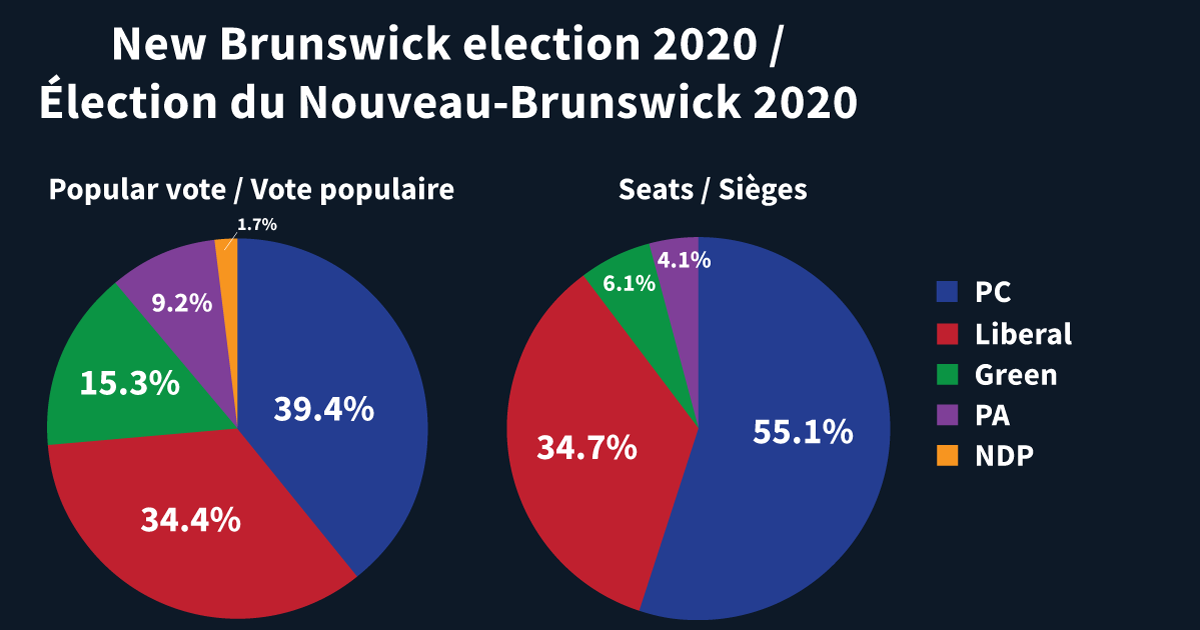
PC Premier Blaine Higgs gambled on a snap election during a pandemic and it paid off, thanks to first-past-the-post. With 39.3% of the popular vote, Higgs PC’s will form a false majority government.
If almost every vote had counted, PC voters would have elected the 20 MLAs they deserved, not 27. Green voters would have elected five more MLAs, and the People’s Alliance two more.
New Brunswick’s famous linguistic divide would have largely disappeared. Instead of the PCs winning none of the 12 northern seats, they would have elected three MLAs there.
Instead of Liberal voters electing no one in the 12 southwestern seats around Saint John, they would have elected two MLAs. Instead of Liberal voters electing no one in the 12 Central ridings around Fredericton, they would have elected two. So the Liberals, still electing the same total number of MLAs as the skewed winner-take-all system gave them, would have had a balanced caucus, rather than electing no one west of Moncton.
“New Brunswick voters saw how well a cooperative government worked during COVID-19,” says Fair Vote New Brunswick activist Sandy MacKay. “Now parties representing 60% of the voters will be shut out of decision-making for the next four years. New Brunswick needs electoral reform!”
Either the 20 PC MLAs or the 17 Liberal MLAs could have governed cooperatively with the eight Green Party MLAs who would have been elected under the regional proportional model recommended by New Brunswick’s Commission on Legislative Democracy in 2004. All four parties could have continued the all-party cabinet committee that has been dealing with the pandemic response.
